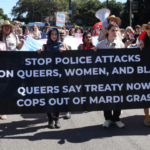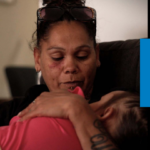What’s in a name? The link between names and offending

When it comes to choosing a baby name, parents will often pick a name they find attractive, or perhaps the name of a loved one.
Others may turn to less conventional sources of inspiration, such as tv and movie characters: hundreds of Khaleesis, Daenerys, Sansas Theons and Tyrions have been born recently, inspired by the phenomenally popular ‘Game of Thrones’ series. But one factor that most parents wouldn’t feel the need to consider is the link between a name and criminality!
One fascinating US study explored the link between a person’s first name and the commission of crimes. Surprisingly, they found that people with certain names had more run-ins with the law than others.
The study, called ‘First Names and Crime: Does Unpopularity Spell Trouble?’, found that some names are more likely to belong to those who engage in crime than others. The study uncovered a correlation between names that are unusual or unique, or have unconventional spellings and those who break the law.
Researchers David E. Kalist and Daniel Y. Lee delved into the real reasons behind this link between names and crime.
Their study found that the proportion of juvenile delinquents with unpopular names is far higher than those found in the general population – and this is regardless of race.
Kalist and Lee began by asking the question: are juveniles with unpopular names more or less likely to become juvenile delinquents? They looked specifically at male names.
Their first step was to give names a rating based on popularity. Names such as Michael and David rated highly, as they are among the most popular male names. On the other end of the scale, the names Alec, Ivan, Ernest, Kareem, Preston and Malcolm are some of the less-popular names.
Cause, Correlation or Coincidence?
Not surprisingly, the authors concluded that an unpopular name does not cause a person to commit crime, but it does correlate with other social factors, such as lower socioeconomic status and a disadvantaged family life.
Children from such families are statistically linked with a higher rate of juvenile delinquency. The authors note a 2004 study similarly found a correlation with a person’s name, and their educational achievements and income.
On the other hand, children of families from higher socio-economic brackets were statistically more likely to have traditional names. And interestingly, the ones with the most common names were more likely to live with both parents, which is another factor that reduces the likelihood of offending.
The authors also mention a study of women which found that those who gave their children unusual or unique names were more likely to have had a lower level of education themselves.
The Impact of Prejudice
Names are, of course, a means of discrimination, which may unfortunately reduce a person’s employment opportunities.
Although this is primarily due to racial discrimination, even conventional ‘English’ names have been shown to attract negative connotations regarding morality, success and friendliness.
Many studies have shown that job applicants with unusual names receive fewer call backs, especially ‘middle eastern’ and Indian names. And those who are not able to get a job are more likely to ultimately turn to crime.
In addition, studies in the US have found that police are more likely to search the car of those with unusual names. This kind of prejudice contributes to the disproportionate number of minorities who come into contact with the criminal law.
All in all, deciding to name your son Preston or Malcolm isn’t necessarily dooming them to a life of crime. By the same token, naming him Michael or David isn’t a guarantee he will stay on the straight and narrow. Rather, socio-economic factors as well as prejudice and discrimination play a significant role in explaining the link between names and crime.






